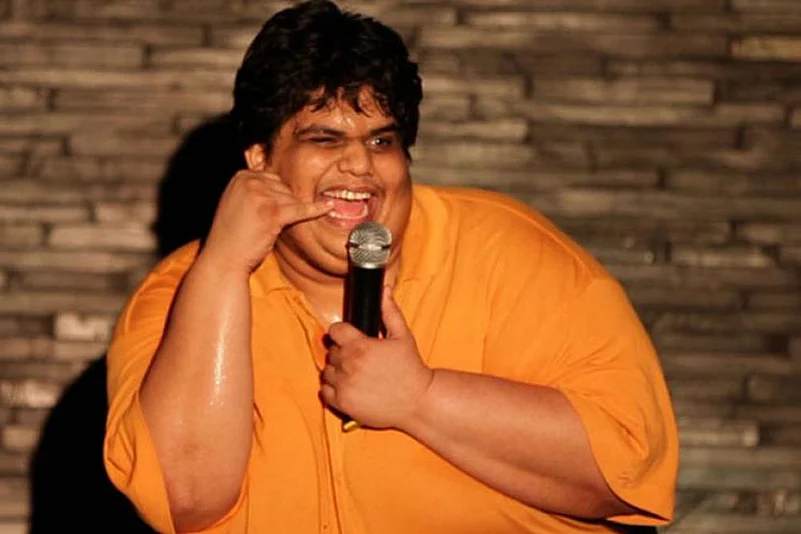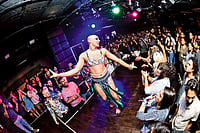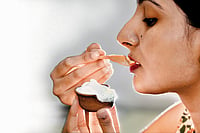The Indian stand-up comedy scene was one of the first to be hit by this wave of the ongoing #MeToo movement. It began with a woman stand-up comic calling out a man who was part of one of new-age Indian comedy’s biggest groups—AIB, or All India Bakchod. Soon, stories about how big names in comedy stayed quiet about the matter and some other names of alleged harassers came out too, puncturing the air built around Indian stand-up comedy that was considered to be one of the most ‘woke’ spaces in the entertainment industry.
For an entertainment space just about half-a-decade old and barely on its way to becoming a full-fledged industry, Indian stand-up promised the youth laughs that were free of sexism, racism, and every other retrograde-ism. It was a rather tall claim, as it turned out. When writer Mahima Kukreja took to Twitter to call out AIB comedian Utsav Chakraborty’s sexual misconduct and his employers’ failure to act on the situation despite being in the know, the floodgates of India’s very own #MeToo movement in comedy opened up. “I want everyone to know @Wootsaw is a piece of shit,” she wrote, tagging Chakraborty’s Twitter handle. “He sent me a d*#^% pic, was creepy, then cried saying I’ll ruin his career if I tell others. I told two of the most influential men in comedy in India. Nothing happened…,” Kukreja said in a series of tweets on October 4. The cascading effect of Kukreja’s words made skeletons tumble out of the funnymen’s dark closets, with Gursimran Khamba of AIB being called out for sexual harassment a few days later as well. This ultimately led to Tanmay Bhat and Khamba stepping down from the comedy collective.
AIB, with its ‘progressive’ reputation was, of course, at the frontline of the scene. Hence, it was more shocking when some of its members were called out. But, all content in new-age Indian stand-up hasn’t been sensitive and in good taste. The immanent exercise after the #MeToo wave hit Indian comedy would be to go over this general gender apathy that not long ago made for smart millennial jokes in so-called progressive spaces.
Sample this gag on consent, the elephant on the stage: One of the most well-known names in Indian comedy, Zakir Khan, talks about the woes of dating Delhi women in his performance at the AIB Diwas in 2016. The joke seemingly ridicules a woman’s refusal to kiss him, what Khan calls a “holier than thou” attitude. She goes on to ask him to not “ruin the beautiful relationship” they have. Khan concludes the joke by mocking the “line” of consent, which he terms as the “unsafest line” in the world, as a step further would turn him into a “molester”, while he was considered a loser anyway.
“Suddenly a M*^F comes in...oh sorry, aunty. “Excuse me bhaiyya, mujhe swimming sikhni hai (I want to learn swimming),” the woman says. “Aapki umar kitni hai? (how old are you)” The instructor asks. “Forty-two”, she says. “It’s never too late”, the swimming instructor says to the woman.”
— Jeeveshu Ahluwalia on swimming and losing weight.
Another joke cracked by Delhi-based comedian Jeeveshu Ahluwalia, who’s also been accused of sexual harassment on Twitter, doesn’t say much, but is perhaps meant to be funny since it incorporates a bunch of gender stereotypes in its narration.
“Jeeveshu has been abusing women on stage for ages now, and he didn’t stop himself from saying similar things to us in the green room. He would talk about their bodies and say very misogynistic things,” says Navin Noronha, a stand-up artiste who’s not only vocal about his homosexuality off-stage, but also chooses to address issues surrounding the LGBTQ community through his performances.
If these jokes expose a tendency to stick to regressive attitudes, the ‘pre-MeToo’ time had also shown a picture of structural bias—discrimination in pay scales, stereotypical audience response etc. This correspondent got a picture of how things stood in Indian stand-up while speaking to some of its known names just before #Me too kicked in a couple of weeks ago. “There’s something very rotten going on, especially when it comes to money,” comedian and actor Mallika Dua had told Outlook. She also mentioned how a male comic, managed by the same agency as hers at the time, was allegedly paid more for the same show they did together last year. “If you’re up against a ‘brotherhood’ you can only do so much. What you then do is ‘throw tantrums’, accept yourself for that and fight your way through it.”
“You have some second category or average looking girls who don’t put up their own photos. They put group photos with other beautiful women, so you remain confused as to which one she is.”
— Nitin Gupta (Rivaldo) on women and their Facebook profile photos.
“Pick a female politician of your choice. Usko kitne bhi chhote kapde pehenaake, kitna bhi drink karake raat ko...chhod do, unko kuchh nahi hoga (make her drink, wear skimpy clothes and leave her out at night, nothing will happen to her). You know why? Because there will be consequences. And that’s the precise point — it’s not about the lack of clothes, it’s about the lack of consequences.”
— Nitin Gupta (Rivaldo) on Delhi rapes
Dua had also talked about lopsided solidarities. How, if a male comic was in trouble for something, “they’ll bail him out of jail, but if some of us say something, it’s immediately a tantrum.” Part of it would come out as being true in Chakraborty’s case, where two influential comics had chosen to stay silent about the issue and continued working with him even after his actions were brought to their attention.
Comic Kunal Kamra had spoken about how women stand-ups had it tougher owing to audience gender biases. “I’ve seen it. Those two-three minutes when a female comedian is performing, people go out to take a cigarette break, or go buy a drink at the bar.” Stand-up comic Pavitra Shetty has had to face similar attitudes. “A lot of people have come up to me and said that I am really funny for a ‘female comic’. Every woman must be getting this,” she said. “And the bias shines through when the same joke delivered by a man and a woman gets different reactions. When men are talking about private parts in a joke, no one is shocked. But the moment I do the same, even if it’s with regard to a topic like eve-teasing, I can actually see people cringe!” she added.
“Terey chouke ke chakkar mein banda chhakka bann jaayega”
— stand-up comedian at an open mic in Calcutta
The structural gender bias in the fast-growing comedy industry had always been visible, if only to a few observers. Amazon Prime’s Comedy Specials, one of the first Indian stand-up shows to be hosted on an OTT (over-the-top) platform, had come under criticism in January 2017 for having a line-up of 14 exclusively male comics. Their partner for the show was Only Much Louder (OML), a company that manages most big names in Indian comedy. But there appeared to be a space opening up for discussing and negotiating such inherent biases, albeit at a sluggish pace. The subsequent show by OML—hosted by Amazon Prime—called Comicstaan, a stand-up comedy competition, had one woman judge in a panel of seven and three woman contestants.
After the #MeToo revelations, the comedy space is looking at an uncertain reshuffle. Though still featuring on Amazon Prime, AIB’s shows have been discontinued by Hotstar, a big hit to the comic collective which is, on its part, contemplating if it should dissolve as a group. As for those within the scene who have had smooth sailing up until now on the back of their casual sexism, now is an apt time for some serious self-reflection.


























